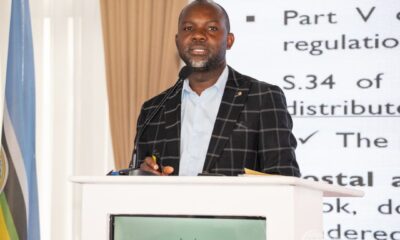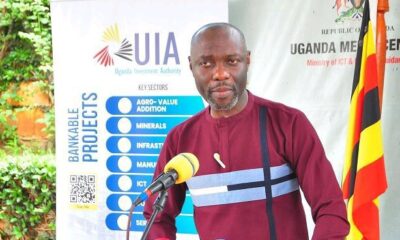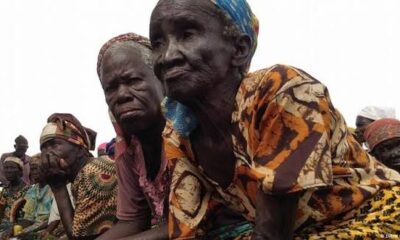Politics
“Once I Become President Of This Country, All Degree Holders In Uganda Will Get 1 Million As Startup Capital” FDC’s Nandala Mafabi Shocks Ugandans

In a bold effort to tackle Uganda’s rising youth unemployment, the Forum for Democratic Change (FDC) has unveiled a major plan ahead of the 2026 presidential elections. Nathan Nandala Mafabi, the FDC’s presidential candidate, has pledged to give every graduate in the country one million shillings as start-up capital. He believes this financial boost will help young people create their own jobs and reduce the high unemployment rate, which has worsened under the current government.

Mafabi, officially introduced as the FDC presidential flagbearer on August 13, highlighted youth unemployment as one of Uganda’s most pressing challenges. According to the 2024 Census, 51% of young people aged 18 to 30 are neither employed nor in education or training. Every year, about 700,000 young people enter the job market, but far fewer new jobs are created, leaving many vulnerable to poverty and frustration.
The one million shilling pledge is part of a wider FDC strategy to fight youth unemployment. The plan also targets gender disparities, as young women are more affected, with an unemployment rate of 18.7% compared to 13.4% for men. Mafabi believes that financial support can help young people build businesses, become self-reliant, and contribute positively to Uganda’s economy.

CREATOR: gd-jpeg v1.0 (using IJG JPEG v62), quality = 82?
A central aim of this initiative is to encourage entrepreneurship among young graduates. With formal jobs scarce, particularly in rural areas, the funding can provide practical support for starting small businesses. Mafabi hopes this approach will reduce reliance on government jobs and empower youth to create their own opportunities.
Youth unemployment also varies across regions. In Bukedi, Lango, Busoga, and Karamoja, up to 60% of young people are neither in school nor employed, compared to just 39% in more prosperous areas like Kigezi and Ankole. Mafabi’s plan aims to bridge this regional gap by giving graduates the financial tools to kickstart their careers successfully.

Some critics have questioned the practicality of the plan, noting that one million shillings may not be enough given rising living costs. Mafabi, however, insists that the initiative is a starting point, providing youth the chance to turn ideas into reality and laying the foundation for long-term economic growth and personal development.
Beyond the one million shilling initiative, Mafabi’s five-pillar manifesto includes broader economic reforms, such as strategic investments, job creation, and modernization of agriculture. As the 2026 elections approach, promises like Mafabi’s could shape political debates and offer hope to Uganda’s growing young population. This initiative represents a significant step toward empowering youth, creating opportunities, and reducing unemployment across the country.




















